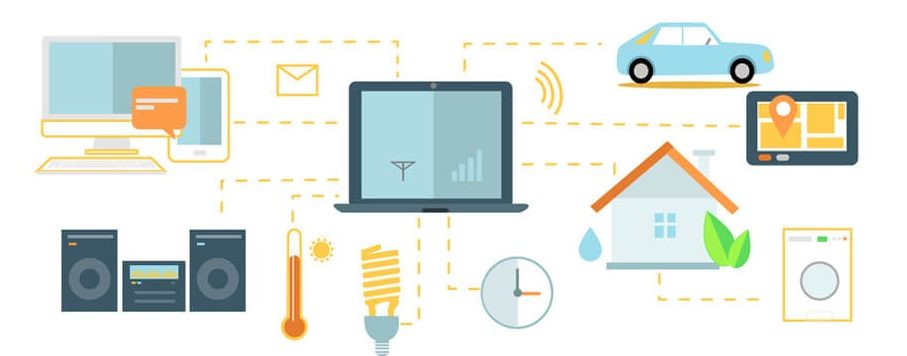Contents
Digital data
Technological growth is good for life. It has made communication easier and rather fast. Online tasks can now be done with a Smartphone in your hand. E-commerce companies sell virtually every commodity online. You don’t need a physically present boutique to shop for merchandise anymore. Amazon is now at your doorstep.
For researchers, the internet has given them a better platform for research through sites such as Wikipedia and the largest search engine, Google. Back in the day, you don’t want to imagine what lengths they had to go to get information.

On the other hand, increased activity online has led to a huge presence and growth of digital data. Massive amounts of data by online users is collected by ISP providers the world over. These new developments on the internet of things have not only attracted deeper governments’ surveillance on the online data of its citizens but criminals’ watchful eyes as well.
Internet privacy

The debate on internet privacy has never been so pronounced like today. Millions of online users are now having their web activity tracked and stored by ISPs. The danger lies in what your internet service provider chooses to do with your data.
The U.S under Obama’s administration, through the Federal Communication Commissions, passed regulations that touched on internet privacy. The FCC advocated for ISPs to request for user permission before collecting and selling their data to third parties. They also wanted ISPs to protect the data of their consumers by maintaining data security.
While these regulations were good for internet consumers, the Republicans felt the new rules by the Democrat-led FCC were burdensome to ISPs. All they wanted was ISPs to be given the power to collect and sell online data without users ‘permission.
This would mean that the mobile apps you use, internet sites you visit, places you visit, your financial transactions and health data could now be used by ISPs for profit at the expense of your privacy. Even though Republicans managed to repeal regulations created by the FCC, it still has powers to crack down on ISPs engaging in unsavoury business practices.
Can companies intercept my private data?

Yeah. Companies such as Facebook and Google aggregate your profile and demographic data to give advertisers a targeted audience. Today, many websites have a Cookies policy that requires every site user to accept. Once you agree to their use of cookies, they are able to track your web activity and send you targeted ads.
However, the internet is just one of the many avenues governments could manipulate to get access to your personal information. For instance, NSA attracted international attention when it was revealed that it was doing a bulk data collection of phone conversations from American citizens. The wiretapping and tracking of email conversations of Americans have made them wary of their privacy. This led many citizens to opt for data encryption services to prevent unwarranted surveillance.
Virtual Private Networks (VPNs)

Currently, Virtual Private Networks are the best software tools to encrypt your data privacy online. VPNs come with a number of benefits that include:
- Access to internet filters and government censored websites
- Data encryption enhancing your security online
- Increasing a company’s productivity through remote control
- File sharing over a certain period of time
- Keeping you anonymous online
- Changing your VPN location with a country of choice
If you are in search of a VPN service that will work for you, you may consider checking this list of the 10 best VPN services. Private data encryption is becoming the new norm for everybody to help cut out on suspicious government surveillance and hackers.
You may not be off the loop yet

With the many data encryption services at your disposal, tech firms and government agencies could be losing it on getting access to private data whether legally or illegally. However, nothing could be further from the truth. Welcome to the world of smart devices where your TV and camera could record your conversations.
This is turning out to be the new escape route for private firms and governments spying on a given target. Security agencies such as the FBI may see this as an alternative to collect private information given the many encryption protocols that are being used today. For example, Samsung announcement about their new smart TV sparked a debate on user privacy. The TV comes with the ability to listen to every word you mention in the room you have it. Data captured could be transmitted to third parties exposing your sensitive information.
With the recently repealed laws allowing ISPs to access the data of online users without their consent nor court order, both governments and hackers are able to access huge chunks of data. Google parent company, Alphabet, sparked controversy when it was found out that its Nest thermostat had security flaws. The device leaked the Zip codes of its users on the internet.
Nest thermostat is a smart thermostat; aside from its basic functions in the room; working to regulate heating and cooling, it can also respond to human presence. This makes it adjust its temperatures accordingly. By leaking ZIP codes of its users online, Nest smart device violated user’s privacy putting into consideration the fact that the data was transferred to the internet unencrypted. Any users online could intercept that data and use it in accessing the privacy of users’ home.
It appears that smart devices are not smart after all. Many put their users’ data at the risk of being intercepted, allowing privacy invasion.
Conclusion
Technology has indeed transformed the world, however, its ramifications on humans are equally astounding. One of its greatest banes is the security flaws that comes with newly manufactured smart devices. Albeit making life easier, they could be used as tools by hackers and governments to access private information from citizens. Going by the onetime leaked covert operations of intelligence agencies, the need to keep your data private has never been so prioritized. With this new need, VPN services could be a making a kill on users seeking to encrypt their data online.





